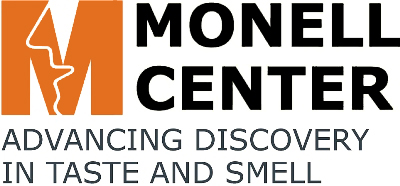Newswise — PHILADELPHIA PA and BIRMINGHAM AL (September 13, 2018) -- A new collaboration grant to scientists from Discovery BioMed, Inc. and the Monell Center will support development of next-generation screening technologies to enable identification of bitter taste blockers. The project’s ultimate goal is to advance human health by improving the taste and acceptability of nutritious plant-based foods and increasing patient willingness to take life-saving oral medicines.
Funded by a Phase I grant from the Small Business Technology Transfer (STTR) program at the National Institutes of Health, the commercial-academic partnership will design and optimize high-throughput taste cell based bioassays that can be used to discover new bitter taste receptor blockers (antagonists).
“The STTR grant will facilitate the transfer of Monell’s taste culture technology through DBM’s biotech entrepreneurship. This project exemplifies the value of public/private sector partnerships in stimulating technological innovation to improve human health,” said Nancy Rawson, PhD, Associate Director at Monell and a Principal Investigator (PI) on the grant.
Bitterness, which can be aversive even at low concentrations, likely evolved as a protective function to help identify and reject potential toxins in plant-based foods. As such, it is no surprise that the bitter taste often associated with healthy plant-based foods prevents many people from enjoying them as part of a nutritious diet. Bitterness also impedes medication compliance, and unpleasant taste is cited as the number one reason for children failing to take medicines as prescribed.
Artificial sweeteners, sugar, and salt often are used to mask bitterness in foods and medicines, but these additives are not always effective and also not ideal in populations trying to avoid diabetes and hypertension.
“Bitter taste currently presents a barrier to overcoming global public health challenges,” said dual PI Erik Schwiebert, PhD, CEO and Chief Scientific Officer of Discovery BioMed (DBM). “As a small business focused on drug discovery, we are excited to be working with Monell to help identify solutions to this problem.”
Research funded by the new grant involves an innovative approach that combines Monell’s established technology to grow and study living human taste cells with DBM’s specialization in the development of human tissue-based assays for high-throughput screening (HTS). The HTS process is used in drug discovery and other applications to rapidly conduct large quantities of tests and is frequently used to identify compounds that can be developed into drugs targeting specific cellular processes.
In 2011, Monell scientists demonstrated that living human taste cells can replicate and be maintained in culture for at least seven months. Grown from tiny samples of tongue tissue from human volunteers, the cultured taste cells retain key molecular and physiological properties characteristic of the parent cells.
Monell researchers have used these cultures to learn more about human taste. However, the cultures are not well suited for use in HTS applications related to bitter taste cells because they also contain several other types of cells.
In the new approach, Monell scientists will use genetic and sensory tests to identify people who are highly sensitive to a range of bitter taste compounds and then obtain tissue samples from those individuals to establish taste cell cultures. Using these cultures, DBM will employ its methodologies to immortalize (grow indefinitely) the cultured cells and then to separate out and clone immortalized bitter taste cells to create a platform for high-throughput screening of potential bitter antagonists.
DBM will test proof-of-concept by challenging the cells with known bitter small molecules and botanical extracts using four previously validated measures of bitter receptor activation. This will ensure that the cloned cells act identically to native human bitter taste cells.
“Using human-derived taste cells to identify potential bitter blocking compounds is more likely to identify blockers that also work in human subjects than tests done in non-taste cells,” said Monell Associate Director and grant PI Danielle Reed, PhD. “During this first phase of development, our goal is to establish the technical merit and feasibility of our approach so that we have a robust platform on which to discover, validate, and profile bitter taste antagonists moving forward.”
The research is supported by a Small Business Technology Transfer Program (STTR) grant from the National Institute on Deafness and Other Communication Disorders (1R41DC017693-01). The content is solely the responsibility of the authors and does not necessarily represent the official views of the National Institutes of Health.
About the Monell Chemical Senses Center: The Monell Center is an independent nonprofit basic research institute based in Philadelphia, Pennsylvania. Founded in 1968 and now celebrating its 50th anniversary, Monell builds on its legacy of advancing scientific understanding of the mechanisms and functions of taste and smell to benefit human health and well-being. Using an interdisciplinary approach, scientists collaborate in the programmatic areas of sensation and perception; neuroscience and molecular biology; environmental and occupational health; nutrition and appetite; health and well-being; development, aging and regeneration; and chemical ecology and communication. For more information about Monell, visit www.monell.org.
About DiscoveryBioMed, Inc.: Throughout its history, DBM has collaborated with experts in academia and this effort is another perfect example of DBM’s novel approaches to “humanize” our niche in the life sciences and biotechnology industry through innovative Human Cell Culture and Engineering, Human Cell-based Bioassay Development and Implementation, and Humanized Drug Discovery, Drug Development and Lead Therapeutic Asset Profiling. Please see our newly redesigned DBM website, www.discoverybiomed.com, for more information about the company, its scientific strategies and methods, and its products and services offerings.
